Up until the 1990s, the number of black-fleeced sheep on farms across Ireland and Northern Ireland was small, with Jacob flying the flag as the so-called black sheep of the family.
Previous to this, black-fleeced sheep were such a rare commodity that outside of a small population of Jacob sheep, Suffolk lambs born with a black fleece or an odd Bluefaced Leicester born with a black or coloured fleece (due to a recessive black gene) were the greatest appeal for children and farmers who had a preference for something a bit different.
Fast forward 25 to 30 years and black-fleeced sheep are not only present in much higher numbers, but new breeds are highly coveted and responsible for registering some of the standout prices witnessed throughout 2021.
Latest craze
The latest craze is for Dutch Spotted Sheep and the Badger Face Texel breed, which also goes by the name Dassenkop.
In recent years, the Blue Texel breed of sheep experienced similar hype after hitting Irish shores, while the Zwartbles breed, which can now be regarded as a mainstay in Irish sheep farming, was the first to dilute the dominance of white-fleeced breeds.
There are several other breeds displaying unique fleece characteristics, including Herdwick sheep and Soay sheep, while the Valais Blacknose is another minority breed which has grabbed the headlines in recent years.
Rise in popularity
2021 will go down as a record year for sheep prices and this extends beyond the general trade for ewes and lambs and encompasses record prices paid for sheep with a black fleece.
Some mart managers handling minority and rare breed sales credit the COVID-19 pandemic as fuelling demand, with adolescents in some cases having more disposable income and investing it in these new breeds.
Black-fleeced sheep have also become a coveted Christmas gift by some and breeds have honed in on this demand with a number of sales held in the run-up to Christmas.
Another aspect is farmers now having greater access and exposure to these breeds through online platforms and purchasing these to foster interest of kids or other members of the farming household.
Below is a brief summary of the main black-fleeced breeds of sheep and a review of what 2021 has been like for the breed.
The Dutch Spotted breed is a relatively new breed in Ireland, with the Irish Dutch Spotted Sheep Association holding its inaugural premier sale in 2021.
The sale was heralded as a great success, with 49 of the 59 sheep on offer finding new homes. A top price of €3,150 was recorded on the day, with females averaging €1,600/head and males €1,100.
A highlight for the breed earlier in the year was a price of 5,000gns (€5,745) paid for a ram at the Springtime Sparklers sale in Northern Ireland. Significant numbers have been imported in 2020 and 2021 while embryo transfer is also boosting numbers of purebred animals born here.
Badger Face Texel or Dassenkop
The Badger Face Texel breed is also known as Dassenkop and is probably the newest breed, with the lowest number of sheep present of the five profiled.
The breed has not formally established its own breed society in Ireland and sales in Ireland have taken place on the back of Irish Blue Texel sheep society sales, while breeders in Northern Ireland are trading through the UK Badger Face Texel Sheep Society.
As the breed is relatively new, a high percentage of purebred sheep offered in 2021 are imported sheep or offspring of these, with many born through embryo transfer.
The breed has had a positive year, with top prices for females recorded at the Blue Texel Premier ranging from €1,000 to €2,000, while prices topped the €2,000/head mark for in-lamb ewes at the recent rare and minority breed sale held in Tullamore.
The Blue Texel sheep are more established in Ireland and Northern Ireland than the Dutch Spotted and Badger Face Texel breeds.
They are similar in stature to these breeds and have enjoyed a positive few years on the sales circuit. Breed numbers have grown significantly in recent years, leading to the formation of the Irish Blue Texel Sheep Society in 2019.
With over 30 members and 200 ewes, ewe lambs and rams produced for sale in 2021, the group held two society sales.
The sale toppers ranged in price from €1,000 to €2,000, with the top ewe lamb offered breaking the €3,000 mark. 2021-born ewe and ram lambs ranged on average from €500 to €900.
The Zwartbles breed of sheep is another Dutch import, but it is a maternal breed of sheep in contrast to the other three terminally-focused breeds already discussed.
The breed was formed by crossing a native breed with Friesian Milk sheep and Texels to give the modern day breed with good milk yield attributes and good prolificacy.
Irish breeders registered their sheep with the UK Zwartbles Sheep Association flock book before establishing their own flock book in 2021 due in part to Brexit. The breed is well established and is registered with Sheep Ireland’s breed improvement programme.
2021 has been a good year for the breed, with the hammer dropping at €3,700 for a ram lamb at the society’s premier sale and smashing the breed record price. This underpinned an average of €750 for ram lambs sold on the day.
Hogget rams sold from €590 to €920, while ewe lambs ranged from €270 to €920 and an average of €550. The clearance was 90% across all categories.
The last breed discussed is the longest established in Ireland. Numbers of Jacob breeders and sheep have remained steady in recent years, with the breed largely run as smaller flocks in Ireland or as a component of larger sheep flock.
The maternal qualities of the breed are let down by lesser terminal traits and it is this aspect which has likely held breed numbers from increasing.
The breed has witnessed more demand in recent years with its visual appearance and the rise in social media enhancing its attractiveness.
2021 has been a solid year sales-wise, with rams averaging €385 in the breed's premier sale, while ram lambs averaged €216, ewe lambs €188 and hogget ewes €267.
Up until the 1990s, the number of black-fleeced sheep on farms across Ireland and Northern Ireland was small, with Jacob flying the flag as the so-called black sheep of the family.
Previous to this, black-fleeced sheep were such a rare commodity that outside of a small population of Jacob sheep, Suffolk lambs born with a black fleece or an odd Bluefaced Leicester born with a black or coloured fleece (due to a recessive black gene) were the greatest appeal for children and farmers who had a preference for something a bit different.
Fast forward 25 to 30 years and black-fleeced sheep are not only present in much higher numbers, but new breeds are highly coveted and responsible for registering some of the standout prices witnessed throughout 2021.
Latest craze
The latest craze is for Dutch Spotted Sheep and the Badger Face Texel breed, which also goes by the name Dassenkop.
In recent years, the Blue Texel breed of sheep experienced similar hype after hitting Irish shores, while the Zwartbles breed, which can now be regarded as a mainstay in Irish sheep farming, was the first to dilute the dominance of white-fleeced breeds.
There are several other breeds displaying unique fleece characteristics, including Herdwick sheep and Soay sheep, while the Valais Blacknose is another minority breed which has grabbed the headlines in recent years.
Rise in popularity
2021 will go down as a record year for sheep prices and this extends beyond the general trade for ewes and lambs and encompasses record prices paid for sheep with a black fleece.
Some mart managers handling minority and rare breed sales credit the COVID-19 pandemic as fuelling demand, with adolescents in some cases having more disposable income and investing it in these new breeds.
Black-fleeced sheep have also become a coveted Christmas gift by some and breeds have honed in on this demand with a number of sales held in the run-up to Christmas.
Another aspect is farmers now having greater access and exposure to these breeds through online platforms and purchasing these to foster interest of kids or other members of the farming household.
Below is a brief summary of the main black-fleeced breeds of sheep and a review of what 2021 has been like for the breed.
The Dutch Spotted breed is a relatively new breed in Ireland, with the Irish Dutch Spotted Sheep Association holding its inaugural premier sale in 2021.
The sale was heralded as a great success, with 49 of the 59 sheep on offer finding new homes. A top price of €3,150 was recorded on the day, with females averaging €1,600/head and males €1,100.
A highlight for the breed earlier in the year was a price of 5,000gns (€5,745) paid for a ram at the Springtime Sparklers sale in Northern Ireland. Significant numbers have been imported in 2020 and 2021 while embryo transfer is also boosting numbers of purebred animals born here.
Badger Face Texel or Dassenkop
The Badger Face Texel breed is also known as Dassenkop and is probably the newest breed, with the lowest number of sheep present of the five profiled.
The breed has not formally established its own breed society in Ireland and sales in Ireland have taken place on the back of Irish Blue Texel sheep society sales, while breeders in Northern Ireland are trading through the UK Badger Face Texel Sheep Society.
As the breed is relatively new, a high percentage of purebred sheep offered in 2021 are imported sheep or offspring of these, with many born through embryo transfer.
The breed has had a positive year, with top prices for females recorded at the Blue Texel Premier ranging from €1,000 to €2,000, while prices topped the €2,000/head mark for in-lamb ewes at the recent rare and minority breed sale held in Tullamore.
The Blue Texel sheep are more established in Ireland and Northern Ireland than the Dutch Spotted and Badger Face Texel breeds.
They are similar in stature to these breeds and have enjoyed a positive few years on the sales circuit. Breed numbers have grown significantly in recent years, leading to the formation of the Irish Blue Texel Sheep Society in 2019.
With over 30 members and 200 ewes, ewe lambs and rams produced for sale in 2021, the group held two society sales.
The sale toppers ranged in price from €1,000 to €2,000, with the top ewe lamb offered breaking the €3,000 mark. 2021-born ewe and ram lambs ranged on average from €500 to €900.
The Zwartbles breed of sheep is another Dutch import, but it is a maternal breed of sheep in contrast to the other three terminally-focused breeds already discussed.
The breed was formed by crossing a native breed with Friesian Milk sheep and Texels to give the modern day breed with good milk yield attributes and good prolificacy.
Irish breeders registered their sheep with the UK Zwartbles Sheep Association flock book before establishing their own flock book in 2021 due in part to Brexit. The breed is well established and is registered with Sheep Ireland’s breed improvement programme.
2021 has been a good year for the breed, with the hammer dropping at €3,700 for a ram lamb at the society’s premier sale and smashing the breed record price. This underpinned an average of €750 for ram lambs sold on the day.
Hogget rams sold from €590 to €920, while ewe lambs ranged from €270 to €920 and an average of €550. The clearance was 90% across all categories.
The last breed discussed is the longest established in Ireland. Numbers of Jacob breeders and sheep have remained steady in recent years, with the breed largely run as smaller flocks in Ireland or as a component of larger sheep flock.
The maternal qualities of the breed are let down by lesser terminal traits and it is this aspect which has likely held breed numbers from increasing.
The breed has witnessed more demand in recent years with its visual appearance and the rise in social media enhancing its attractiveness.
2021 has been a solid year sales-wise, with rams averaging €385 in the breed's premier sale, while ram lambs averaged €216, ewe lambs €188 and hogget ewes €267.




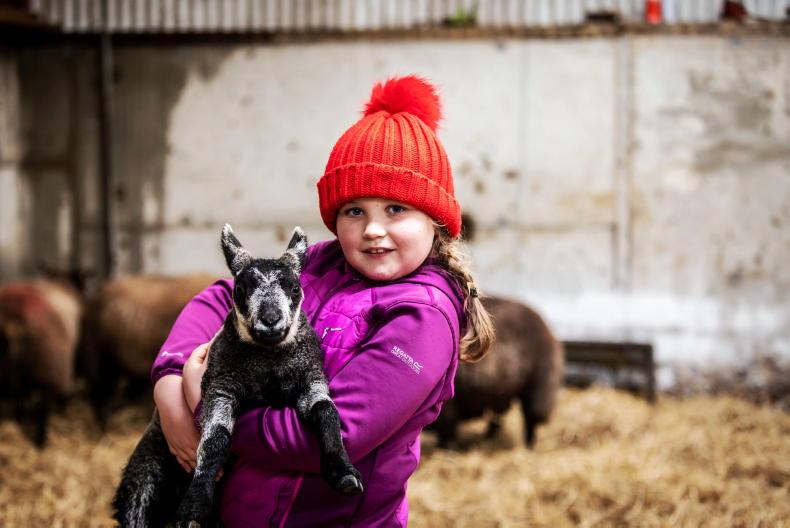
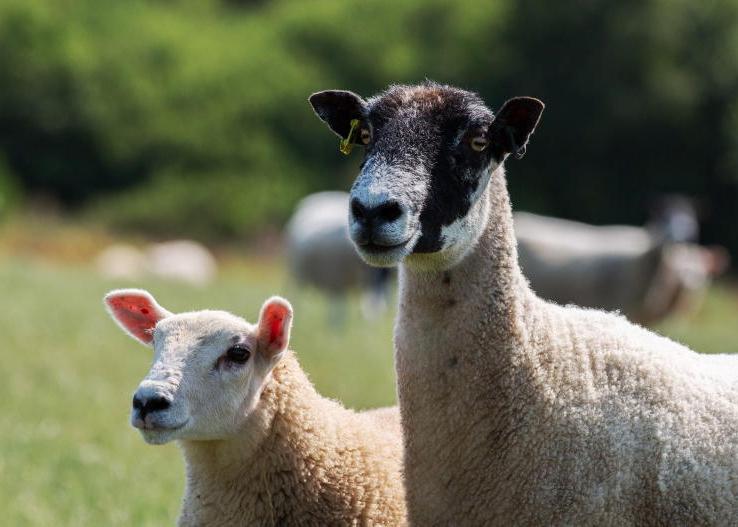

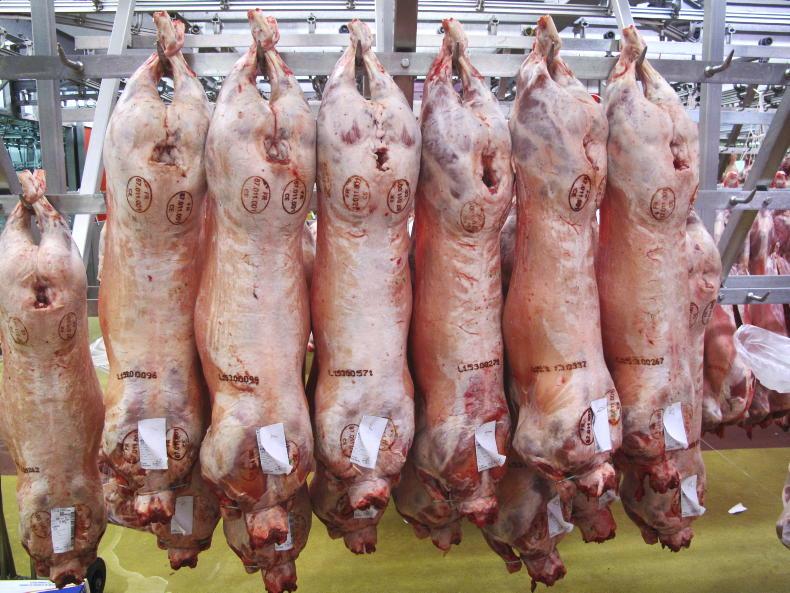
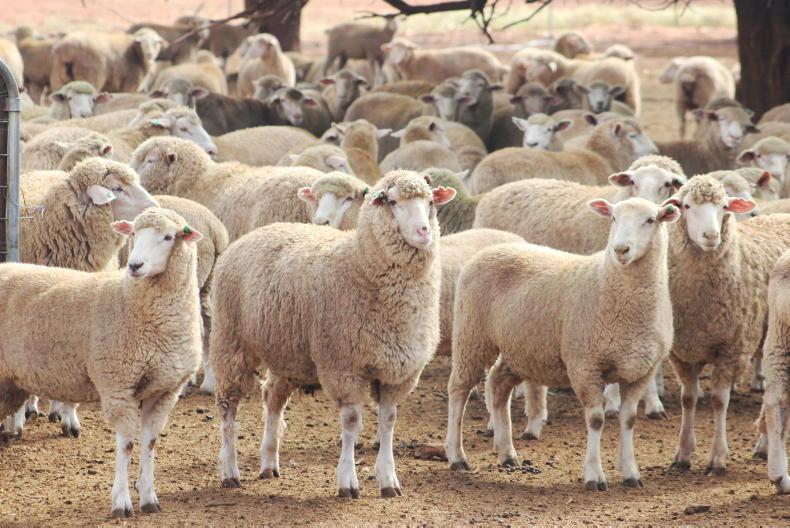
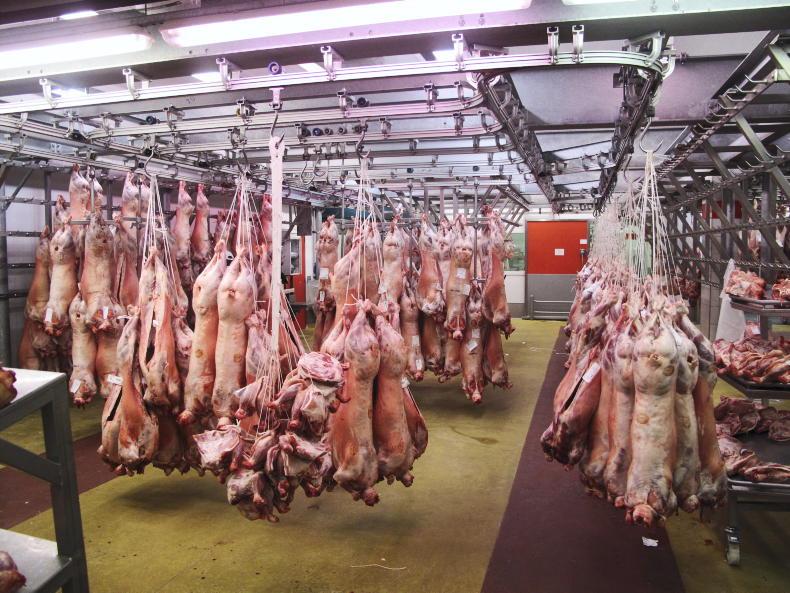
SHARING OPTIONS